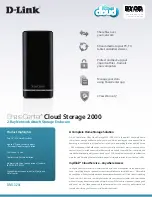
QuickOn for Windows for the IBM Network Station Release 3.0
Page 6 of 13
4. Choose
F5 = Set Configuration Parameters
.
a. Set
Configuration File
to
flash.nsm
if your MetaFrame server is not configured for
load balancing. If you are using load balancing, set this field to
flashlb.nsm
or
flashbc.nsm
depending on whether you want the direct connection or broadcast
capability.
b. Set the
First
entry under
Configuration Directory
to
/local/configs/.
c. Set the
First
and
Second
entries under
Configuration Host Protocol
to
Default
.
Leave the other entries blank.
d. Press
Enter
to return to the Setup Utility.
5. Choose
F7 = Set Language Parameters
.
a. Choose
F2 = Select Keyboard Language
.
b. Set the appropriate language for your system using the cursor keys.
c. Press
Enter
to return to the Select Keyboard Language screen.
d. Press
Enter
to confirm your keyboard language (if correct). You will return to the Set
Language Parameters screen.
e. Press
Enter
to return to the Setup Utility.
6. Press
Enter
again to start the boot process.
The Network Station should boot and display the message
NS0810 Booting from local device
and then load the kernel. The Network Station splash screen and MetaFrame, WinFrame, or
WinCenter login screen will appear shortly. You may see a message in
red:
NS0830 Boot from PCMCIA card failed
Ignore this message.
If the boot monitor is down-level, a screen that indicates a boot monitor refresh appears.
Do not
touch the system during the boot monitor update
. The Network Station automatically reboots
when the update completes.
After the reboot, if you get a blue screen with the Console window, something has been set up
incorrectly. Clear NVRAM and re-enter the configuration information. If the problem continues, see
the
Troubleshooting
section below.
Setting NVRAM for Boot Monitors Prior to 3.0
If the Network Station boot monitor level is lower than 3.0.x, proceed with the following steps.
1. Choose
F4 = View Hardware Configuration
.
a. Verify that the flash card has been successfully configured. The type of flash card will be
listed under
PCMCIA Card:
. If you do not see a
PCMCIA Card
entry then the card has not
been configured.
b. Press
Enter
to return to the Setup Utility screen.































